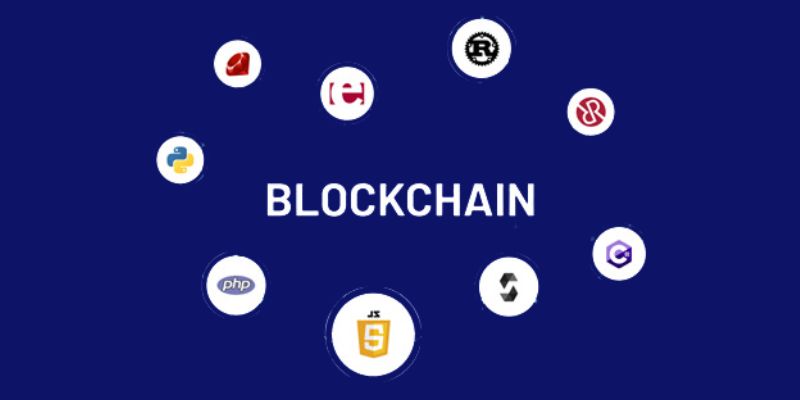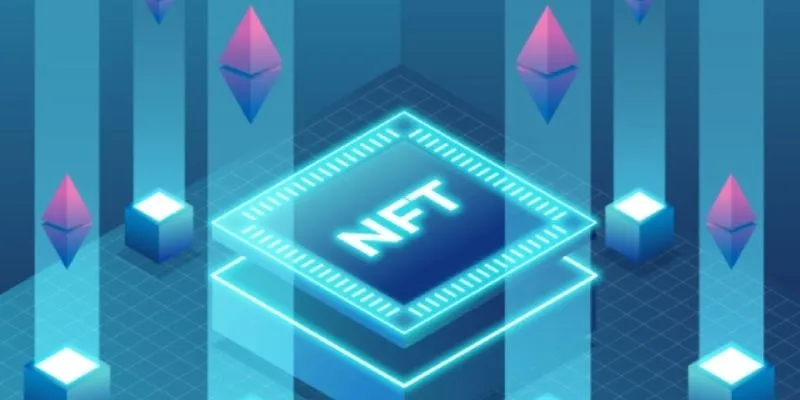Technology has profoundly transformed in the 21st century as new digital technologies that demonstrate their immense potential emerge. One such emerging digital technology is blockchain development services; even though its early days of development remain to be determined, its capabilities make its prospects for continued advancement bright.
Blockchain is a distributed electronic ledger that records transactions among various computers within its network. Given its immense potential in financial services, banking, energy production, healthcare, and more, its industry has experienced remarkable growth over recent years.
Gaining an in-depth knowledge of this area is necessary before exploring the skills needed to become successful blockchain developers. When you do so, it will be much simpler for you to identify and enhance the essential qualities required of a developer and, therefore, embark on an enjoyable career!
Also Read: Learn the Basic Concepts Behind Blockchain Technology Now
What Is Blockchain?
Blockchain is a digital ledger that securely, efficiently, and transparently tracks transactions between various parties. Unlike traditional ledgers, however, blockchain is decentralized, meaning no single entity controls it. Instead, it uses nodes connected by computers to store and validate information into blocks that link chronologically in a chain-like format.
Every blockchain block contains an unchangeable hash code generated from an intricate mathematical algorithm to protect unalterable information from third parties and entities. When added to a chain, these blocks become permanent pieces that cannot be erased or modified later.
Read Also: Custom Blockchain App Development: A Comprehensive Guide for 2024
Blockchain Languages: Stats Overview
Hard Fork analytical agency released figures showing the popular languages used in blockchain development solutions. Solidity was the undisputed leader in this sector. As Ethereum continues to dominate, Solidity remains its go-to platform for developing apps for the Ethereum platform. Following that followed JavaScript and Java, respectively, and then added to the top 5 ranking with Python and Go.
Other languages could be used in blockchain development services but on a smaller scale. TheyPHP, C++, C#, RIDE, and Quorum are tools used to create apps for blockchain-related platforms.
What is the best way to choose the blockchain programming language before deciding on an idea?
The choice of the right blockchain-related coding language will largely determine your project's success because blockchain languages typically provide the functionality required and tools to build specific features and structures. Here are some suggestions for selecting the best language that is compatible with your project requirements:
-
Opt for independent and multi-platform blockchain language development. This will simplify code writing and enable global use of the blockchain app without requiring native apps on every platform.
-
Select a programming language that can support rapid prototyping and is easy to use.
-
Choose a language that's not that difficult to find and has an easy learning curve (this will make finding developers much easier and won't cause any bottlenecks in updates and support).
-
Consider scalability garbage collection and statically typing capabilities.
Blockchain technology is attractive to various industries, businesses, and even users. It provides an unbreakable and secure record of all transactions. It also provides the highest level of data ownership. It lowers the risk of security breaches and fraud within the financial industry. It also helps in effective control and monitoring. Additionally, it is associated with greater trust, efficiency, speed, and stability, which is the reason for the increasing demand for blockchain development services.
The applications currently in use and the potential for blockchain technologies are countless since every business has data they want to transfer securely. The following list of instances of spheres where blockchain technology has been extensively used:
-
A decentralized approach to finance (DeFi)
-
Digital IDs
-
sharing of health information
-
Supply chain management
-
Electronic voting
-
Real estate
-
Cloud storage
-
Asset tokenization
In the supply chain, blockchain's unparalleled connectivity allows for the management and tracking of millions of items and shipping containers worldwide. With the rapid growth of commerce, it can be a handy tool for facilitating data exchange between manufacturers, suppliers, shippers, logistics firms' customers, and other parties. So, whatever your interests or business goals, knowing the language programming required to build blockchain development solutions essential for the development of effective blockchain-based systems.
Must Read: Complete Guide of Blockchain App Development For 2024
Best Programming Languages for Blockchain Development

If you've already learned about the fundamental processes underlying blockchain's operation, It's time to talk about the programming languages used in blockchain. These programming languages are like those used in non-blockchain applications. The only distinction is that they use specific methods to create blockchains. Another point is that standard programming languages can be utilized to construct blockchain-based systems. What is the most popular blockchain-related programming language?
Solidity
It was created to make smart contracts. This programming language has received increasing attention lately. It was created by the people who invented Ethereum, an extremely well-known technology that facilitates online payments using cryptocurrency. This is why Solidity can be precisely adjusted to be compatible with its counterpart on the Ethereum blockchain. The primary advantage of this language is that it's comparable to JavaScript, ECMA-262 Powershell, along with C++, which allows developers to learn it. Developer-friendliness is accompanied by flexible language and straightforward instructions, making Solidity appropriate blockchain development solutions. Other benefits of this language are the following:
-
Support for inheritance elements in the construction of structures
-
Support for hierarchical images
-
Member variables are used in objects and classes
-
The use of ABI
However, some may see Solidity as less valuable than other programming languages, like JavaScript. The issue is that Solidity is only used to create blockchains, whereas JavaScript can be used in all areas and utilized across various spheres. However, this limitation hinders developers from using the blockchain technology programming language.
Solidity is the most popular option to hire blockchain developers, and hundreds of projects have been created with this language. The most well-known projects using Solidity are:
-
EVM- When you think about Solidity uses, Ethereum is the first instance that comes to mind. Most smart contracts in Ethereum-based programs and the software that powers EVMs have been written with Solidity.
-
Compound- Compound is a unique algorithmic project that creates money markets using an independent interest rate-setting mechanism. Smart contracts are built using Solidity.
-
Unswap- It is the very first DEX developed by an Ethereum enthusiast and a dedicated fan of Buterin This cryptocurrency exchange uses a number of Solidity-powered infrastructure components.
JavaScript
JavaScript is a different popular programming language that is used for blockchain. The primary area of use is the development of games and apps; however, it's also valuable to hire blockchain developers due to the following reasons:
-
Faster and more efficient time-to-market.
-
Scalable dApp development.
-
Simple integrations.
-
Cross-blockchain app design.
Specific blockchain projects using JavaScript include:
-
Hyperledger- Fabric is an open-source permission framework that the Linux Foundation backs. It is a high-end platform that includes advanced privacy protocols and modular tools for architecture development.
-
Chaincode- A specific fabric script designed for specific tasks within the blockchain development framework.
Java
Java is a popular programming language utilized in blockchain. It is the official Android code language and an excellent choice for developing back-end tasks. In addition, it is popular among blockchain developers due to its usage of C syntax and tools for developing smart contracts and the dApp creation feature. Java provides:
-
A simple method of cleaning memory.
-
Access to a variety of libraries.
-
Compatibility with OOP.
Java created the foundation for a variety of blockchains that are well-established:
-
IOTA- A free blockchain designed to facilitate machine-to-machine transactions. It's frequently utilized to power IoT systems.
-
NEO- A blockchain-based project explicitly targeted at the Chinese market. It offers a range of features, such as innovative contract development and asset tokenization.
-
Corda- Corda is an open-source blockchain platform for enterprise-level applications. Several companies manage this consortium blockchain.
Move
Move is a secure, solid programming language suitable for designing smart contracts. It's platform-neutral and draws heavily on Rust and an older Libra language. The language was initially developed by Meta (former Facebook) and intended for use on the Diem blockchain. However, Meta ultimately abandoned it and used it in a variety of other projects, such as the well-known Sui and Aptos.
The rising popularity of Move is attributed to the urgent issues regarding blockchain security. The flaws and vulnerabilities in smart contracts can be devastating and undermine the trust of users, which can hinder the adoption of blockchain development services. Move is becoming more popular as a cutting-edge Layer 1 programming language. The latest projects constructed using Move include:
-
Aptos- A layer-1 blockchain that is based on the classic version of Move that is distinguished by its high throughput and sophisticated protection (aka "Solana killer")
-
Sui- A decentralized layer on one blockchain using a delegation PoS algorithm that uses modified bytecode versions of Move to facilitate secure blockchain programming and support the creation of a secure Web3 startup.
With all of these capabilities in view, I will describe the benefits of Move according to:
-
Straightforward, platform-neutral coding logic
-
Ability to build specific resource types
-
Advanced security
-
Incompleteness from dynamic dispatch
-
Unlimited flexibility
Python
As per the TIOBE Index and PYPL Index, Python is considered the most suitable blockchain-related programming language, as well as other languages mentioned in this post. Open-source means that everyone can utilize various libraries, tools, and frameworks, making it easier to design. Python is extremely easy to master, making it an ideal starting point in blockchain development services. The universal nature of Python makes it suitable for creating desktop applications, machine learning, and, perhaps most importantly, blockchain. The following benefits make Python an ideal choice to hire blockchain developers who work on various projects ranging from games to software for financial purposes:
-
Suitable for scripting and base approaches
-
Speed
-
Opportunity to scale most complex applications
-
Reduces time to debug due to built-in testing capabilities
-
Excellent for both blockchain and smart contracts.
-
A large community and fair accessibility to assist
Python's ease of use and efficiency are likely to expand its applications further in the near term and will be a part of the current notable applications of this blockchain language, including:
-
Vyper- a basic blockchain-related programming language specifically designed for the design of smart contracts, using many of Python's tools and logic.
-
Celo- Python was the foundation for most of Celo's SDK, allowing Celo developers to perform simpler blockchain interactions.
-
Algorand- The blockchain programming platform with the algorithm to develop based on Python instruments.
Go (Golang)
Go, or Golang, is a second programming language for creating blockchain systems. It's like C in synthesis. However, it includes garbage management, security for memory, and structural typing capabilities. We'll look at some of the best characteristics and benefits that this programming language offers:
-
Concurrency features
-
Usability and readability
-
High-speed performance
-
Easy to keep
-
Efficient
-
Suitable for high-performing programs
The Go community currently comprises more than 800,000 developers. This means that tech assistance and support are available on the Internet.
Most successful blockchain-related projects comprise:
-
Cosmos- The Cosmos SDK, a set of blockchain development tools, and ComerBFT are written using GO.
-
Kubo- Kubo is the earliest version of the IPFS Implementation. It is a command-line program also used as the library for GO development.
-
Ethereum Go- Developers can utilize Geth to establish connections between their dApps and the Ethereum network. They can also use Ethereum Go to launch and manage Ethereum nodes.
C#
C# is a classic in the world of programming. It's an OOP language with extensive capabilities to create enterprise-grade applications, cloud solutions, and cross-platform digital products. It comes with various features and is compatible with C, SQL, and .NET frameworks, each of which has numerous advantages in blockchain development. C# is extensively employed to develop dApp or blockchain development because:
-
Open-source language.
-
Simple, understandable syntax.
-
Syntactic similarities to C++ and Java tools for blockchain-related coding.
-
Portable code across devices.
-
Cost-effectiveness.
The most well-known blockchain applications developed with C# are:
-
Stratis- A blockchain is a decentralized development platform that simplifies blockchain programming for Microsoft programmers.
-
BaaS- A technology powered by Stratis that allows non-Blockchain Development Company to use the complex blockchain architecture.
-
NEO- NEO The smart contract design logic that powers NEO. NEO blockchain is based on C#.
C++
It is among the oldest and most popular ones. It has profoundly impacted the software industry over the last decade. C++ is a medium-complexity language that is reliable and universal, which is why a lot of operating systems are drivers for system devices and browsers. Utilize C++ as their primary language. The following attributes allow C++ suitable for blockchain development solutions:
-
Polymorphism
-
Abstraction
-
Data hiding
-
Encapsulation
-
Multithreading features
-
Efficient memory control
C++ is the most popular software for blockchain development services because it is fast, has object-oriented features, and is compatible with multiple platforms. Other aspects that help C++ stand out are its superior computational performance and transparency, as well as customization and utilizing an application called the Standard Template Library (STL). These tools make it easier to create blockchain and Hire Blockchain Developers to join functions and data in modules such as blockchain that use cryptographic chains to link the blocks. The fact that many of the most popular blockchain platforms like Ripple, EOS, Stellar, Monero, and Blockchain utilize C++ demonstrates its effectiveness and dependability.
A few drawbacks of C++ must be noted:
-
This method could be too complicated for novice developers.
-
The code might require a revision.
-
There isn't any garbage collection feature available in C++.
However, these issues aren't significant and can't overshadow the positive aspects that this programming language offers. This is why it was employed to create the most advanced blockchain development solutions with the most reliable and well-known cryptocurrency. The most innovative blockchain-related projects using C++ include:
-
Bitcoin- The first cryptocurrency and blockchain, revolutionizing peer-to-peer transactions and introducing the entire world to decentralization.
-
EOS- An open-source blockchain system featuring excellent scalability, flexibility, and parameters for throughput.
-
Ripple- A revolutionary blockchain technology with a proprietary remittance system that can settle gross in real time.
Rust
The new technology is less well-known than Simplicity and C++, but it is widely used to develop secure, innovative, and unchangeable blockchain development solutions. The main benefits it offers developers include:
-
Clear development guidelines
-
Zero-cost abstractions
-
Speed
-
Memory efficiency
-
Reliability
-
Self-upgradability function because of using WASM
-
Opportunities based on concurrency
-
Management of mutable states
People with experience with C++ find it simple to master Rust because both programming languages share the same syntax. However, this resemblance could be a problem if developers are not aware of the distinctive characteristics of Rust. The projects based on Rust you'll surely know about include:
Solana- A well-known blockchain with a massive throughput and meager transaction costs.
NEAR- An ecosystem with a Foundation blockchain, a sharded structure, and a PoS mechanism to ensure consensus.
Polkadot- A robust Web3 blockchain that has outstanding scaling and interoperability.
Vyper
The increasing use of Vyper in blockchain development services is attributed to being a language for contract-oriented programming that borrows a lot of its logic and architecture from Python. It is specifically designed to target EVMs and gives developers the ability to write a simple language and compiler. Vyper was developed with an emphasis on security. No loops and inheritance mistakes are possible in the process of development. Another significant advantage is its high degree of auditability and user-friendliness.
Hire Blockchain Developers who usually select Vyper due to its simple language design and faster speed. However, they must pay a price for the limited range of functions and limited interaction.
Benefits of Vyper include:
-
Simple, Python-like syntax.
-
Cutting-edge security.
-
Early error detection.
-
More efficient creation and compilation.
-
Incredible performance optimization.
-
Auditability which guarantees transparency of the logic in code.
-
Smart contract and EVM orientation.
One of the most important projects developed using Vyper:
yEarn - A DeFi platform for managing assets with diverse use cases to provide liquidity, crypto lending, and insurance.
Curv- A high-end crypto wallet for institutions that eliminates the requirement for private keys and streamlines the storage of crypto assets.
Lido- A liquid-based stacking system that unites the Ethereum, Polygon, and Solana blockchains. It also offers Staking derivatives and other native token staking solutions.
Conclusion
Blockchain development services have seen a radical evolution in recent years. The huge popularity of blockchain technology has led to numerous potential opportunities available to blockchain experts. Some of the most crucial requirements that blockchain developers have to master are the ability to program proficiently and a solid understanding of blockchain technology.
Additionally, hire blockchain developers who need to be well-versed in security fundamentals, cryptography, and smart contracts. They should also become familiar with the industry of blockchain development. This will allow them to have the latest information and knowledge pertinent to their professions.
The rise of blockchain technology has devised new possibilities for career options and opportunities. If you want to use the latest career opportunities, you should have the necessary skills, abilities, and experience. You can achieve a competitive edge by mastering blockchain development services skills.
Your abilities and expertise will make you leave a positive impression on prospective employers. So you can use your talents to make a difference in your professional life in blockchain development. But, you must remain alert to the changing blockchain environment and add value as a blockchain developer. Your expertise and abilities can help you succeed as a blockchain developer.













Share this blog